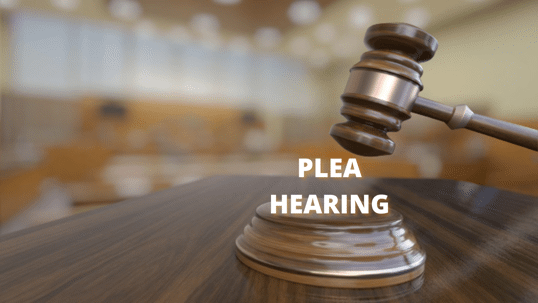The defendant always has the final word for trialing a case or entering a plea. Assuming that the defendant wants to enter a guilty plea to the underlying charge, the plea hearing is often confusing for many people. This is another reason why it is so important to have a criminal defense lawyer on your side even when choosing to plea guilty to a charge.
Before a plea hearing, a criminal defense lawyer should meet with his or her client, the defendant, to discuss the details of the plea, more specifically, the plea petition. The typical plea petition will outline the details concerning the underlying charge, such as the charge itself, its statute, the maximum and minimum sentences, and any agreement reached between the defense and prosecution.
More importantly, the plea petition should outline, and the lawyer should explain in detail, the various constitutional rights the defendant is waiving, or giving up when they enter a guilty plea. We’ll cover those rights later, but for now, the important thing to remember is that those rights should be explained BEFORE the plea hearing.
That brings us to the plea hearing. First, the judge should ask the defense lawyer if there is an announcement, at this point, the lawyer should announce that his or her client wishes to change their plea to a guilty plea. After that, the judge will review the details of the plea petition to ensure that the defendant understands 1) the nature of the charges, 2) the constitutional rights that the defendant is waiving, and 3) that the defendant is doing this of their own free will. The judge will repeatedly explore these points on the record by asking the defendant if they understand. During the plea hearing, the judge will also allow the prosecutor to read the charges from the indictment and give a statement of the proof they would expect to introduce at trial. Towards the end of the hearing, the judge will ask the defendant something to the effect of “Having heard everything, do you still maintain your guilt” to ensure that the defendant still wants to move forward with their guilty plea.
An important point to remember is that at any point during the hearing, except at the end, the defendant has an absolute right to withdraw the guilty plea and choose to move forward with a trial. However, there is no turning back once the judge formally accepts the defendant’s guilty plea. Typically, a defendant will know that the judge has accepted the guilty plea because the judge will say something similar: "I find that the plea has been made freely and intelligently, and therefore formally accept the defendant’s plea of guilt.” Once the judge says those words, there is no turning back, and the judge will proceed with sentencing. We’ll be sure to cover sentencing hearings in more detail later as well.
By having the court review the facts and circumstances of the case, reviewing the constitutional rights of the defendant, and even asking the defendant if they are satisfied with their attorney, the court is making it almost impossible for the defendant to come back later and challenge the plea and accompanying sentence. Pleading guilty is not something that any defendant should take lightly. Instead, a defendant should make sure that their lawyer goes through the entire case with them to determine if he or she should plead guilty, and the lawyer should then make sure that their client understands the full impact of a guilty plea.

